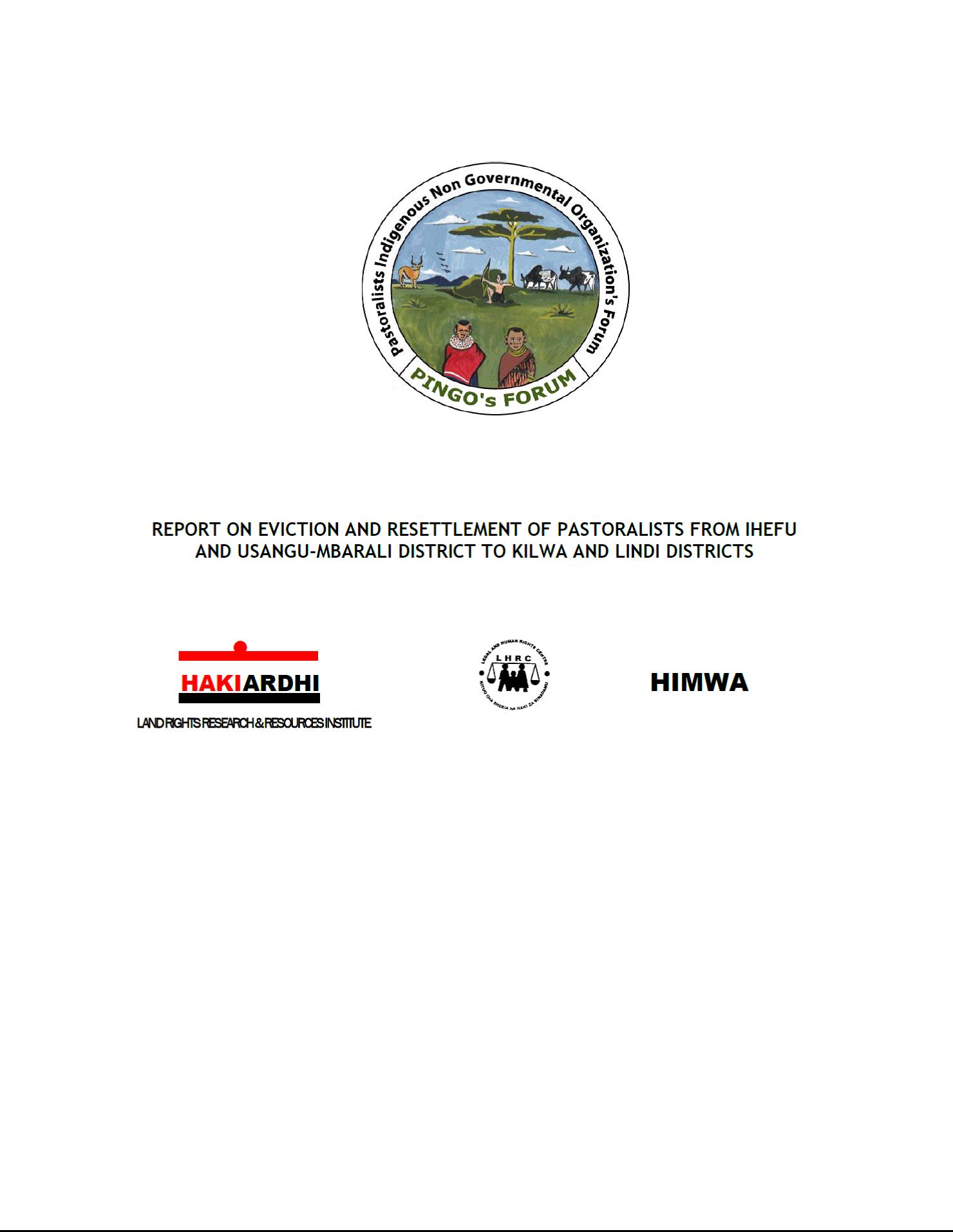Resource information
This study is focused on the effects of the eviction process of pastoralists from Mbarali to Lindi Rural and Kilwa Districts in Lindi Region. The study sampled six villages out 15 villages in Lindi Rural and Kilwa districts. The study employed semi-structured interviews and focus group discussions with district, village authorities, host communities and migrating pastoralists in selected villages. The multi disciplinary team included journalists, lawyers, Economists and social and development practitioners, the combination of which enriched the data collection, processing, analysis and reporting.
The study aimed at justifying the fact that the government and its institutions was not prepared and did not have an affirmative plan to execute the eviction process. Consequently, failure in planning and implementation of the eviction process led to violation of basic human rights and loss of property by pastoralists moving from Ihefu-Usangu to Lindi Rural and Kilwa districts.
The eviction plan and its implementation were based on unfound allegations that pastoralists were responsible for environmental degradation. On the contrary scientific studies conducted in Ihefu-Usangu basin and the milestone in the drop of the flow water from Ruaha river revealed that the cause to environmental destruction and the consequent complete dry up of the Ruaha river for a period of more that three month each year (1970-2006) was attributed to increased number of small and large scale rice irrigation farms in the catchments areas and the Usangu-Ihefu basin.
The eviction plan and processes that targeted pastoralists had negatively impacted pastoralists socially and economically. The implementation of the eviction involved human right violation; where people were beaten, families were separated most of them children, women and the elderly, left without protection and food, many pastoralists robbed of their cattle, heavy fines imposed on alleged environmental damage to livestock keepers, forced to trek and transport their livestock without designed resting grounds for grazing and watering a situation that attributed to large number of livestock death, government authorities in Mbarali districts created a mechanisms for pastoralists to sell livestock at the lowest prices, marked between 20, 000 and 50,000 Tshs. This mechanism benefited government officers who took advantage of lower prices to buy livestock. Government authorities demanding bribes from pastoralists at different livestock check point, the worst of all check points being the Mkapa Bridge at Ikwiriri Pwani Region.
Based of the effects of the eviction process this study recommend that the government establish a probe commission to investigate the allegation of human rights abuse, corruption and failure on the part of concerned government authorities to implement the eviction process successfully, and take legal action against all culprits. This study also proposes that a nationalwide discussion be initiated to include all stakeholders in an attempt to map the future of pastoralism in Tanzania.



